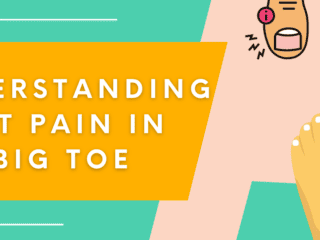The side effects from shingles shot include some muscle ache around the injection site, fatigue, and headaches among others.
Even though these symptoms are seemingly unpleasant, they don’t last long. Having a shingles shot is essential in lowering the risk of developing shingles. Two dosages are taken six months apart.
By getting the shingles shot, you will reduce the chances of getting shingles and the complications that can come with it. But what are the side effects of the shingles shot? And is it worth it? Let’s have a look.
Side Effects After Shingles Shot
The shingles shot is an intramuscular injection. Most people will experience only mild to moderate pain after having the shingles shot administered.Â
- Your arm will ache for anywhere from 1-3 days. The area around the injection site will have some mild swelling and redness.
- You might experience a headache, body ache, and tiredness.
- Shivering, fever, stomach pain, upset stomach, and nausea are also common side effects after having taken the shot.
- Make sure to take some paracetamol to help handle the pain right after having the shot administered.
These side effects are normal, they help stimulate your immune system, and are not signs of an allergic reaction.
What Virus Causes Shingles?
The virus that causes chickenpox is the same virus that causes shingles.
If you’ve recovered from chickenpox as a child, the virus will lay inactive in the nerve tissue around your spinal cord and brain.
Years later, the virus may reactivate as shingles. Having the shingles shot taken can prevent this from occurring.
Shingles is a viral infection that causes a painful rash. It usually appears as a strip of blisters on one side of your torso, head, or face.
Although shingles isn’t life-threatening, it can be painful and uncomfortable. It makes your skin sensitive, and you may experience both burning and tingling.
The shingles shot/vaccine can significantly reduce the risk of activating the dormant virus and developing shingles and other complications related to the viral infection.
Chickenpox and the Shingles Vaccine
Because they’re related to the same virus, in some rare cases, people can develop chickenpox after having the shingles vaccine.
While this is a risk you should certainly be aware of, bear in mind that it’s incredibly unlikely to happen. You can only contract chickenpox once in your lifetime, so if you’ve had it before, there’s no need to worry.
Of those who are at risk, instances of developing shingles is only 1 in 10,000 individuals (0.001%). Still, if you’re at risk, you should monitor your symptoms closely and report any signs of chickenpox to your healthcare provider.
Allergies And The Shingles Vaccine
Equally rare but just as important is the possibility of having an allergic reaction to the shingles vaccine leading to anaphylaxis. The two major culprits behind allergic reactions to vaccines are gelatine and neomycin, a common antibiotic.
The list of ingredients in the Shingrix vaccine is long, so if you have allergies to other medications, it’s a good idea to speak to your healthcare provider to check that you’re safe to take it.
It’s better to be safe than sorry, and your doctor should be able to advise you as to whether you’ll be safe or if you need to look for an alternative solution.
Who Should Get A Shingles Shot?
If you’re in good health and 50 years old or older, then you should get the shingles vaccine.
Whether you’ve had shingles in the past or not, the shot will help prevent any further instances of shingles from cropping up.
If you had chickenpox as a child, or even if you’re not sure if you’ve had it, it’s best to have the shot as a precautionary step.
The vaccine has proven to be 90% successful in preventing shingles and its accompanying complications. It is 85% effective in people 70 years old or older.
It’s always best to consult your healthcare provider before deciding to get the vaccine.
If you are pregnant or breastfeeding, in ill-health, allergic to any of the vaccine ingredients, or have a weak immune system due to antibiotics or sickness, you should refrain from having the shot.
If you currently have shingles, you should wait until after you’ve recovered before getting the vaccine.
Which Vaccine Helps Prevent Shingles?
The Shingrix vaccine is the preferred vaccine of the medical community. It is licensed and recommended to help prevent the development of shingles.
However, after four years, it’s not necessary to get a booster shot again. Once you’ve received your two initial shots, you’ll be immune.
Conclusion
Making sure you’re vaccinated against shingles will save you from uncomfortable pain and unsightly rashes. But, as always, you need to be aware of the risks associated with your medical decisions.
Nothing in life is ever completely without risk, and the shingles vaccine is the same. If you’re concerned with any of the side effects, we recommend speaking to your doctor and they’ll advise the best way forward.







